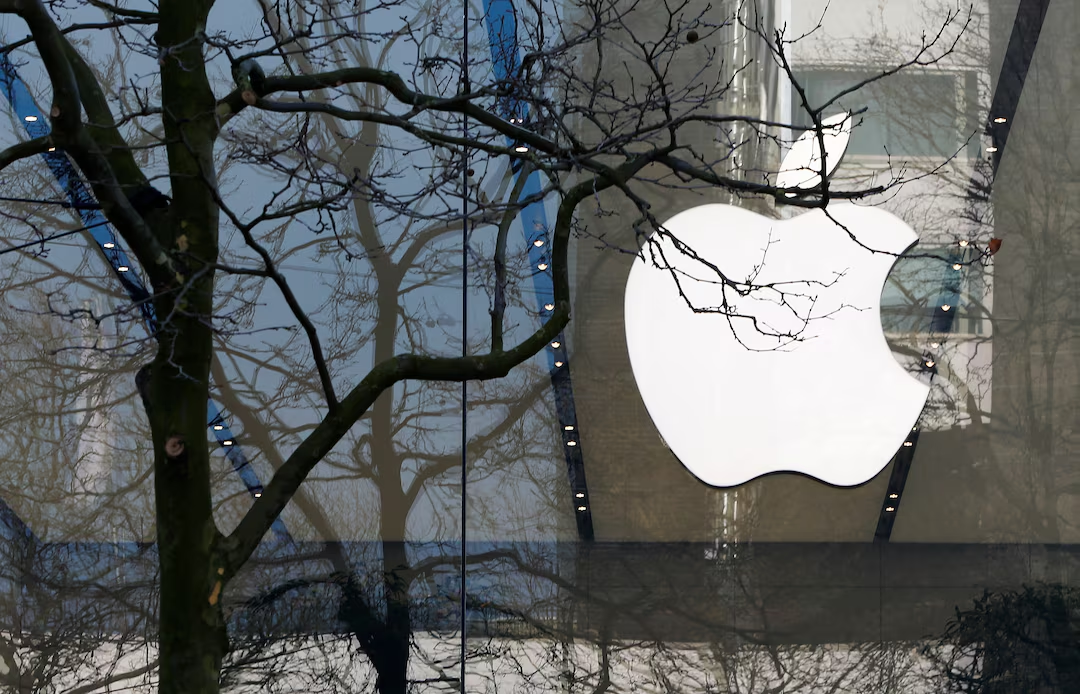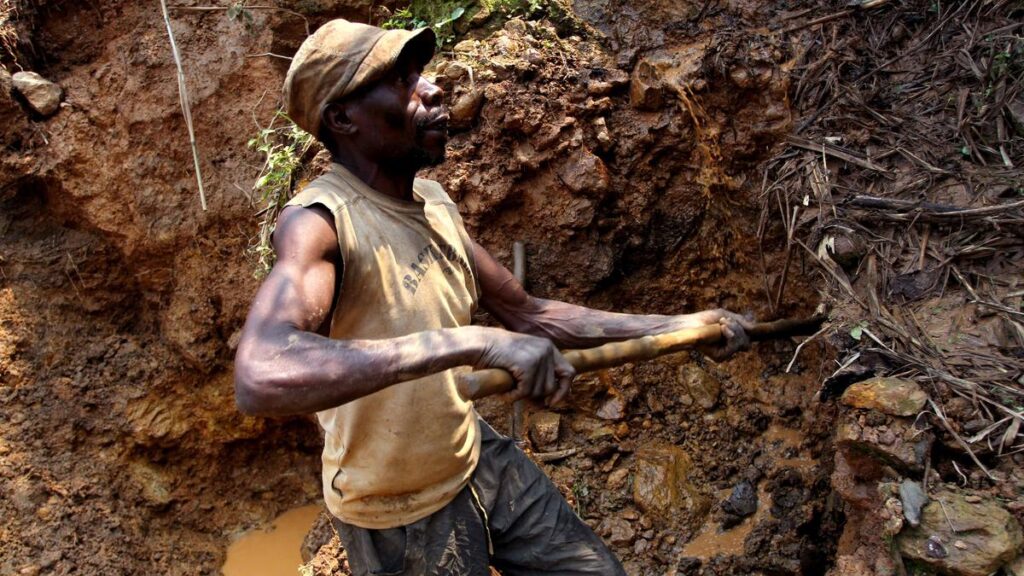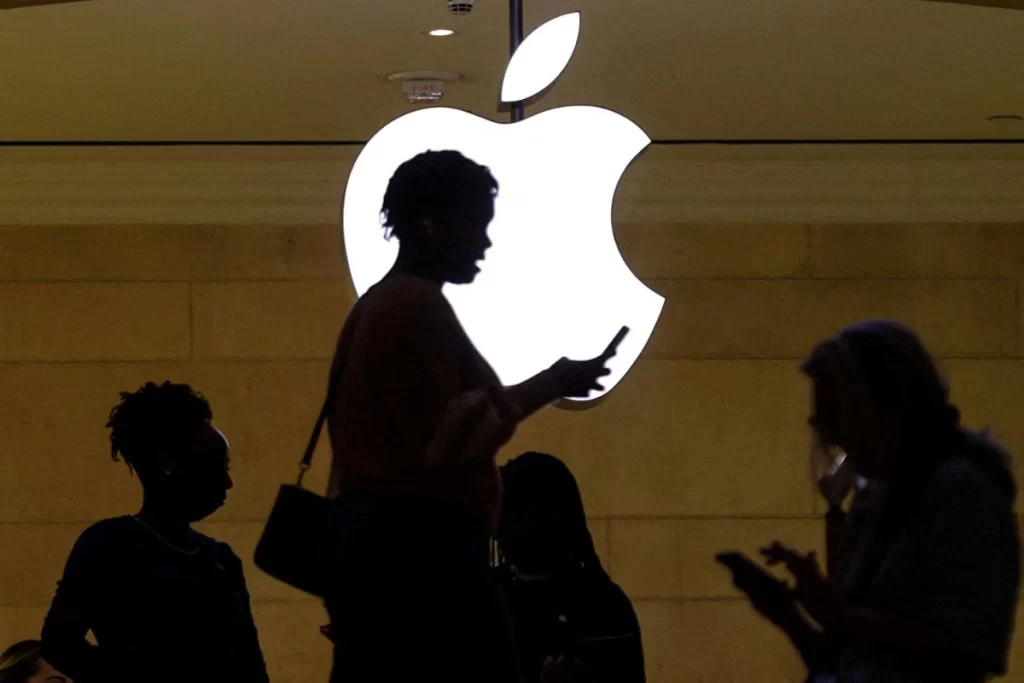The Democratic Republic of Congo (DRC) has filed criminal complaints against Apple subsidiaries in France and Belgium, accusing the tech giant of complicity in the use of conflict minerals in its supply chain. Lawyers representing the Congolese government stated that the allegations include laundering minerals tied to armed groups, covering up war crimes, and misleading consumers by falsely claiming ethical sourcing practices.

Congo remains a major supplier of tin, tantalum, and tungsten—known as “3T minerals”—essential for manufacturing electronics like smartphones and computers. However, many of these minerals are extracted from artisanal mines controlled by armed groups accused of atrocities, including massacres, looting, and systemic violence, according to United Nations reports and human rights organizations.
Apple, which does not directly source primary minerals, asserts that it rigorously audits suppliers, publishes compliance reports, and collaborates with initiatives to improve transparency in mineral traceability. In its 2023 conflict minerals filing to the U.S. Securities and Exchange Commission (SEC), Apple stated that none of the smelters or refiners in its supply chain had been found to finance or benefit armed groups in Congo or neighboring regions. Despite this, Congo’s legal team argues that minerals originating from conflict zones are laundered into global supply chains, rendering Apple complicit in the crimes taking place in eastern Congo.
The legal complaints, filed simultaneously with the Paris prosecutor’s office and a Belgian investigating magistrate, accuse Apple subsidiaries in France and Belgium of systemic wrongdoing. Among the charges are concealing war crimes, handling illicit minerals, and carrying out deceptive commercial practices to assure consumers of ethical operations. The complaint filed in France specifically states that Apple and its subsidiaries are fully aware that their supply chain relies on exploitation and systemic abuse, referencing U.N. and rights group findings.

Belgium’s historical connection to Congo’s resource exploitation adds another layer to the case. Christophe Marchand, a Belgian lawyer representing Congo, emphasized Belgium’s moral responsibility to address the ongoing pillaging of resources that began under King Leopold II’s colonial rule. He noted that Belgium has a duty to support Congo’s efforts to achieve accountability through legal action.
A key focus of the complaint is ITSCI, a traceability and certification scheme funded by the metals industry to verify the origins of 3T minerals. ITSCI operates across Congo, Rwanda, Burundi, and Uganda, but Congo’s lawyers argue the initiative has failed to prevent minerals from conflict zones being falsely labeled as ethically sourced. The Responsible Minerals Initiative (RMI), an industry group that includes Apple as a member, removed ITSCI from its list of approved schemes in 2022 due to concerns over its reliability. Earlier this year, the RMI extended ITSCI’s suspension until at least 2026, citing a lack of field oversight and accountability, particularly as violence escalates in Congo’s North Kivu province.
Despite ITSCI’s discreditation, Apple referenced the program multiple times in its 2023 SEC filing without acknowledging its removal from RMI’s approved traceability systems. Congo’s legal team asserts that Apple uses ITSCI as a cover to falsely present its supply chain as clean while continuing to benefit from the region’s mineral exploitation.
The complaints are set against the backdrop of decades of instability in eastern Congo, where competition for resources has fueled waves of conflict since the 1990s. Armed groups, some allegedly backed by neighboring Rwanda, exploit mineral resources to fund their operations, perpetuating cycles of violence and displacing millions of civilians. The U.S. State Department acknowledged these issues in a July 2023 statement, warning that illicit mineral trade from Congo, Rwanda, and Uganda continues to finance instability and human rights abuses.

Rwanda, frequently accused of benefiting from smuggled minerals, has denied involvement. However, U.N. experts and human rights organizations maintain that the country remains a major transit hub for illegally exported minerals.
The complaints mark a significant legal milestone, with Congo’s lawyers describing the filings as the first criminal actions taken by the Congolese state against a multinational technology company. Robert Amsterdam, a U.S.-based lawyer representing Congo, characterized the legal move as the beginning of a broader effort to hold corporations accountable, calling it a “first salvo.”
Judicial authorities in France and Belgium will now decide whether to open formal investigations and pursue criminal charges. Both nations are known for their strong stance on corporate accountability, making them strategic choices for Congo’s legal action. If the case advances, it could establish a precedent for multinational corporations, particularly in the technology industry, to face legal consequences for unethical supply chain practices tied to human rights abuses.
Apple’s position as a leader in ethical sourcing will face greater scrutiny as the case unfolds, while the Congolese government continues its push for accountability in the international arena. Congo’s legal challenge highlights the growing pressure on corporations to ensure that materials essential to modern technology are not tied to systemic violence and exploitation.


